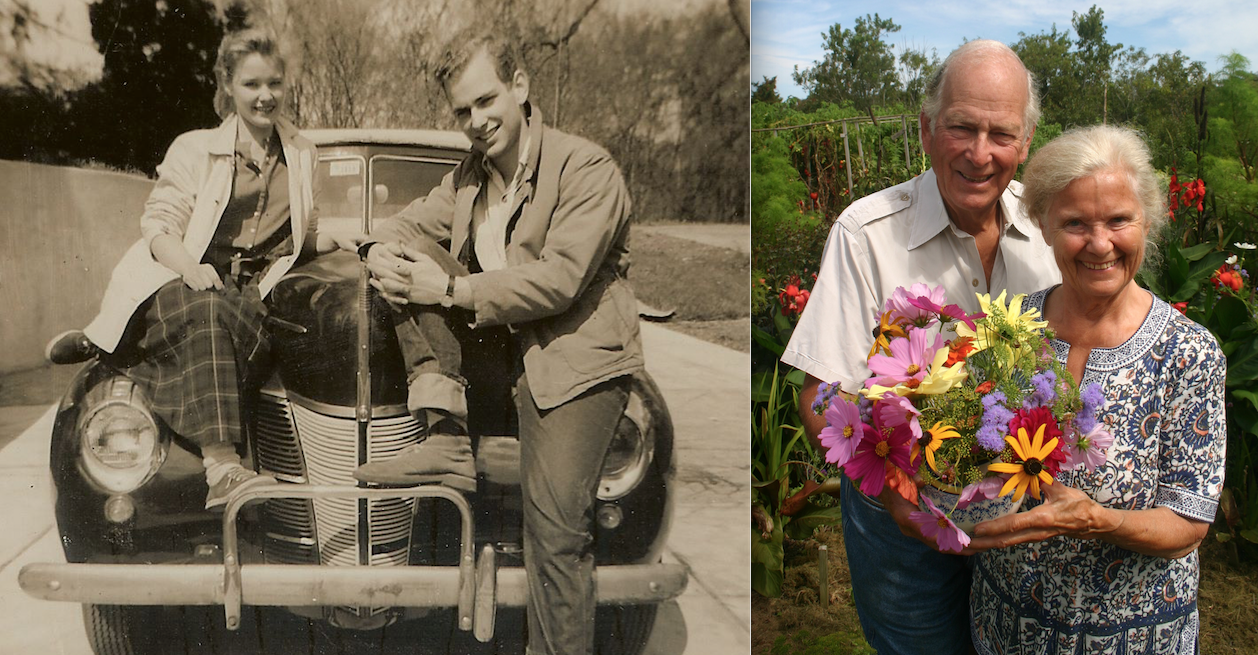I’ve always known that my grandparents were cool. It first hit me when they told me of their close friendship with Julia Child, who I had learned at a young age was a major player in the culinary world. As I got older, though, I discovered that Julia Child’s friendship was relatively low on their long list of collective accomplishments. I learned that my grandfather, Russell Morash, introduced Do-It-Yourself television to the world as the producer and director of This Old House and The Victory Garden and that my grandmother, Marian Morash, was known on TV as Chef Marian and was the founding chef of a notable restaurant at a time when kitchens were predominantly male-run.
While Ive known for a while about my grandparents many achievements, it wasnt until this summer when I interviewed them for this blog that I realized just how extraordinary their stories are. So, in only a few paragraphs, I will do my best to sum up the highlights and explain how they came to be the trailblazers they are today.
The Founding Father of How-To Television
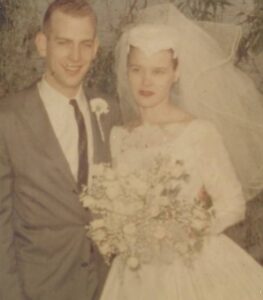
The year was 1955. In Boston Universitys theater department, a sophomore girl studying scenic design caught a glimpse from across the studio of a sophomore boy studying to become a theater director.
I saw this really quite good looking fellow and I thought, Hmm, I wonder who he is, Marian recalls today. I made sure I got introduced, and well, that was that.
The two both graduated in 1957, and upon graduation Russell was faced with a big decision. Should he accept a job offer of assistant stage manager for a Samuel Beckett play in New York, a first step toward fulfilling his Broadway director dreams Or should he accept a position as a production assistant/cameraman for WGBH TV, a Boston-based Public station that sought out Russell for his theater experience In those days, the TV industry included cameras the size of refrigerators and on-screen talent with no experience performing. Russell was a catch his background in theater made him desirable for this new held. He chose WGBH, likely due in part to the fact that if he stayed in Boston he could continue his love a air with Marian (which became a marriage in 1958), but also because he believed he could work his way up in the budding television industry and ultimately make a diffrence.
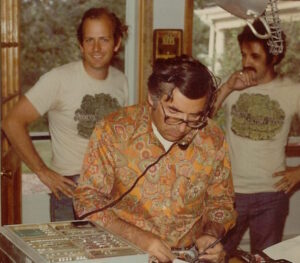
Russell Morash (far left) shooting an episode of The Victory Garden in 1977.
Russell went on to produce and direct a number of television programs for WGBH, beginning his career with science programs and childrens shows like Science Reporter and Ruth Anns Camp and going on to specialize in DIY programming including shows such as The French Chef with Julia Child, The Victory Garden, This Old House, and The New Yankee Workshop, among others.
Often called the founding father of how-to television, Russell believed that the world could benefit from instructional programs teaching people how to improve their lives, from growing and cooking vegetables to building and fixing furniture in their homes. The public was incredibly receptive to these programs at the time, and his shows kick started an entire industry, one that prevails today with the hundreds of cooking shows and home improvement shows still on TV.
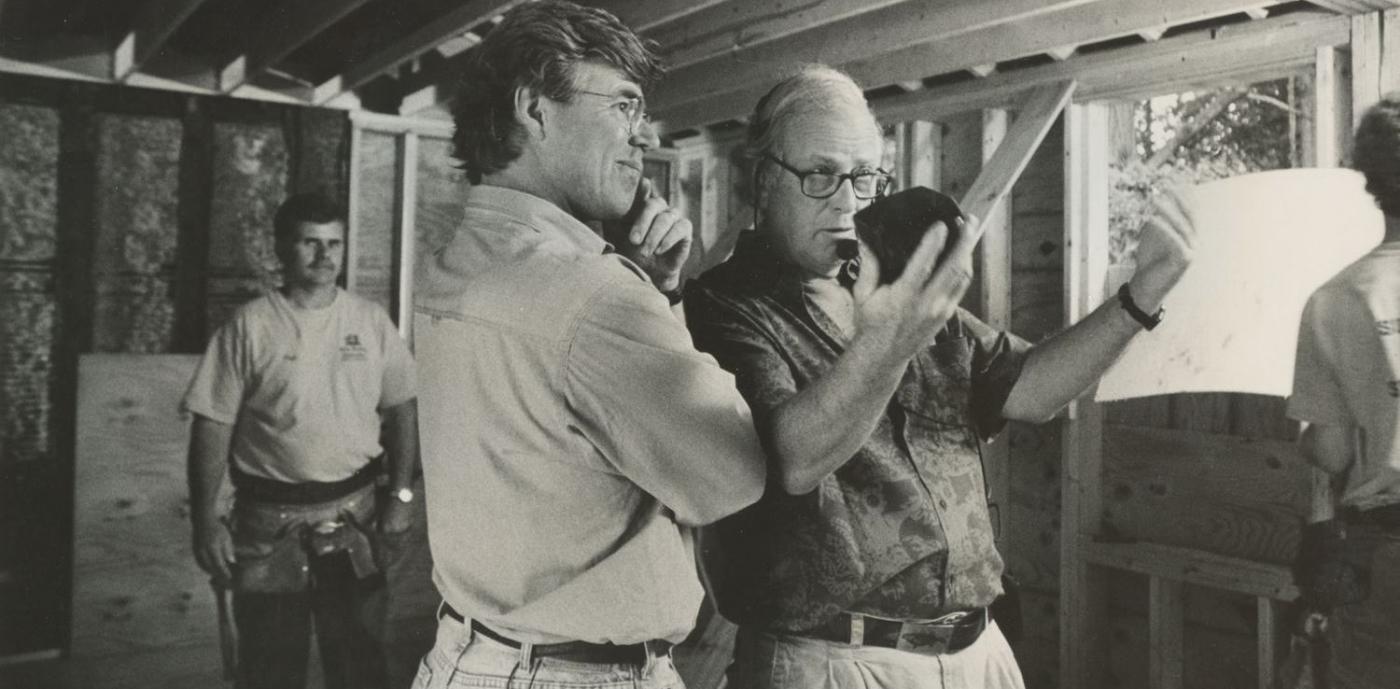
Russell (right) directing an episode of This Old House.
Televisions Chef Marian, Woman in Charge
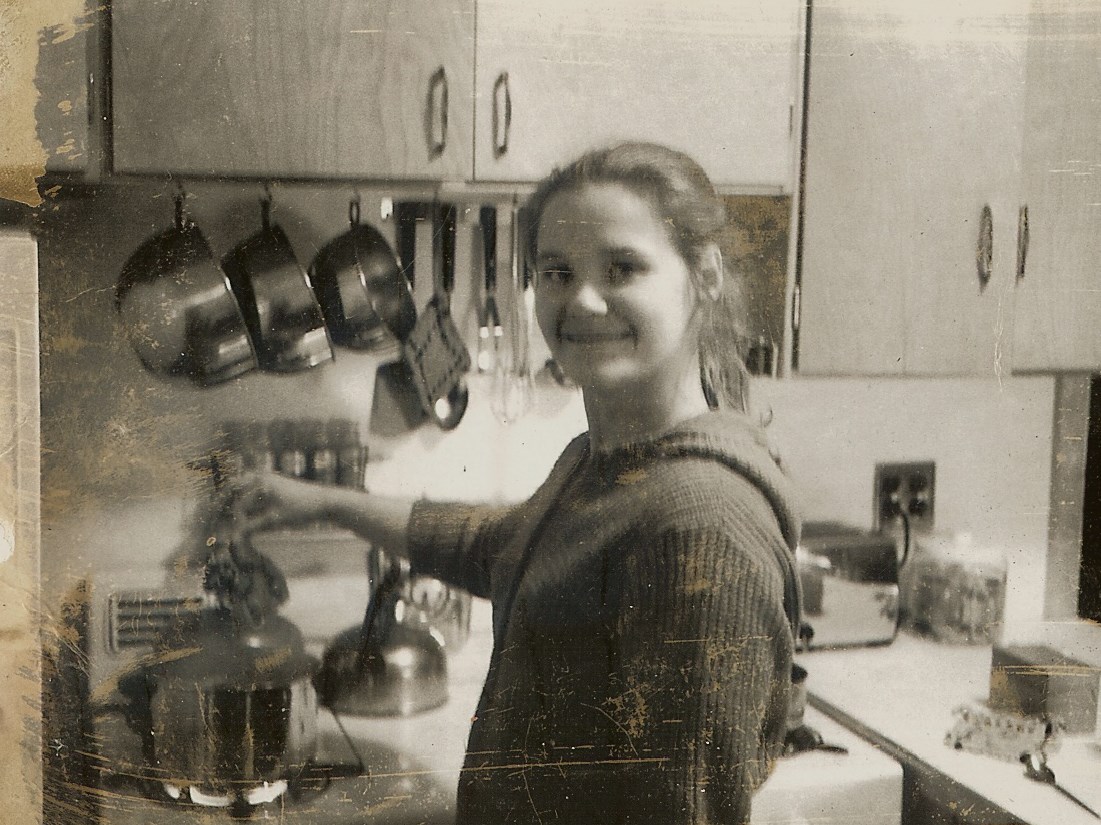
Marian experimenting with a recipe from Julia Child in 1963.
My grandmother wasn’t always comfortable in the kitchen. It was only when Russell began working on The French Chef with Julia Child in 1963 that Marian first started cooking. Russell would bring home leftover food from the show and instructions from Julia on how to prepare and cook it. Suddenly, Marian went from cooking her usual tuna fish casserole to preparing things like whole goose stuffed with prunes that were stuffed with foie gras. Inspired by Julia’s entertaining personality and love of food, Marian and her friends began watching the show and experimenting at home. This marked the beginning of her successful cooking career as a television cook, cookbook author, and restaurant chef.
In 1975 Russell asked Marian to cook vegetables as Chef Marian on his show, The Victory Garden. Up until this point, the show taught people how to garden and grow their own vegetables, but with Marian’s added cooking segment, viewers could now learn how to prepare and cook what they grew. Her segment became a hit, and the show inspired Marian to write The Victory Garden cookbook series, the first of which was published in 1982.
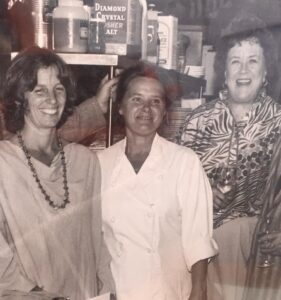
Marian Morash (center) with Laine Gifford (left) and Julia Child (right) in 1983.
The same year that Marian began cooking on The Victory Garden, she and her friend Susan Mayer were approached by Jock and Laine Gifford, friends of theirs who wanted to start a restaurant on the island of Nantucket. The restaurant would not be a professional kitchen, but rather a place that would serve the simple and delicious food Marian and Susan prepared at dinner parties, which Jock and Laine often attended. Marian agreed to give it a try, and the restaurant opened in 1976. Through trial and error, and by reading the cookbooks of Julia Child and Joe Hyde, Marian taught herself what she needed to know to be a chef and run a restaurant. She went on to run Straight Wharf Restaurant for 11 years and received the James Beard Whos Who of Food and Beverage in America Award in 1984.
For a period of time, Straight Wharf had an all-women kitchen, aside from a young man who shucked oysters. This was unusual for a restaurant in those days, a time when many male chefs believed that women didnt have a place in the kitchen, that women weren’t cool in the kitchen. Chef Marian defed the norm and proved just how successful a woman head chef could be.
I’ve always admired the ways in which my grandparents were able to pave their own paths, so I sat down with them one-on-one and asked them a little bit more about what it takes to be a pioneer. Even though I interviewed them individually, I was struck by how similar their answers were.
OW: What qualities does a trailblazer need to have
Marian Morash: Curiosity is a big thing. You dont get anywhere if youre not curious and want to learn. I would go back to Julia on this one. I remember once that she had a Cuisinart. The first food processor in the U.S. was the Cuisinart, and then gradually other companies began to make food processors. She had to get every single one of them because she was curious. Does this one work better than this one, can I make more with this one than that one That was the story of her life. If she was walking down the street and somebody stopped to ask her about a recipe, she would then get curious about what they were making and how they were making it and who they were making it for. I think thats a very important part about doing well in life.
Russell Morash: Curiosity. One of the great things about Julia Child was that she was a curious person. She would ask you what your job was before shed tell you anything about herself because she was truly interested in it and how you worked and what you needed.
OW: Whats one quality that your partner has that you wish you had more of
MM: Confidence. Hes very confident. He’s very sure of what he’s doing. He doesn’t think about it and say oh maybe I should do this or do that.
RM: I wish I could cook. But she’s so good at it theres just no point.
Madeleine Cohen, Oldways summer intern


